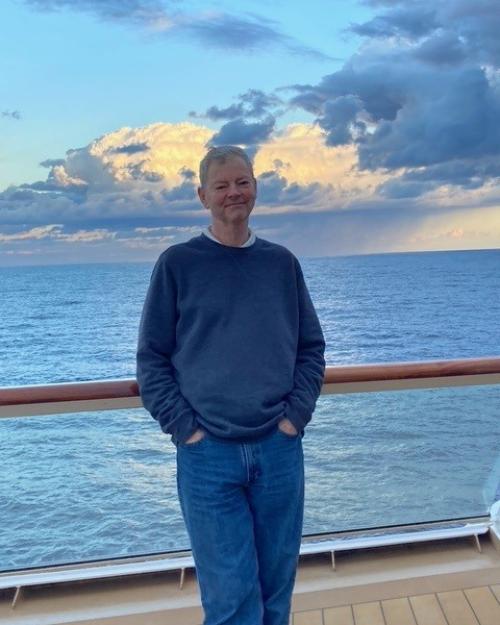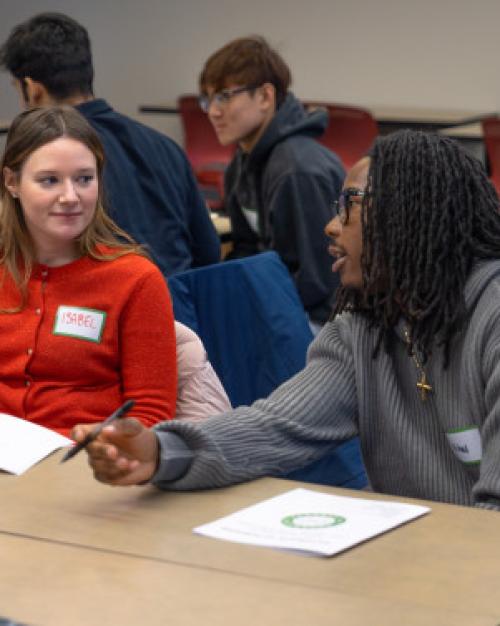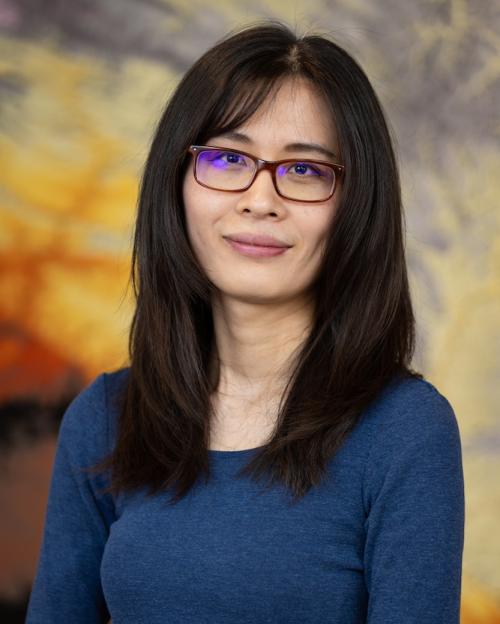Memories are more than mental records of events, according to neuroscientist Wenbo Tang; for humans, a sense of self is wrapped up in the memories our brains hold–or let go of.
“When a human being loses their memories, it’s not just as simple as losing a record of their life. More importantly, I think, we lose a sense of who we are,” said Tang, a Klarman Postdoctoral Fellow in neurobiology and behavior in the College of Arts and Sciences (A&S). “I couldn’t think of anything more basic and fundamental to a human being, the way we know who we are.”
Tang, who studies memory, knows this on a personal as well as academic level. Her grandfather has Alzheimer’s disease, one of more than 44 million people worldwide who suffer from this disease or related forms of dementia.
During her Klarman fellowship, Tang is working to discover the exact workings of beneficial characteristics of the human brain, such as flexibility and reliability. Insight into these and other characteristics will help develop therapies for memory-related diseases, but Tang also wants to use this understanding to improve AI systems, which lack such characteristics, despite their power and resemblance to the human brain.
When a person moves to a new city, for example, she adapts quickly, Tang said, learning new routes without many trials and errors.
“This ability relies on not only years of everyday experience and knowledge that a person has built in their memory system, but also flexible use of these memories,” Tang said. “Such rapid adaptation in the ever-changing environment and seemingly unlimited contexts is an ability that modern artificial intelligence systems, even the most advanced ones, cannot achieve.”
With faculty co-hosts Antonio Fernandez-Ruiz, the Nancy and Peter Meinig Family Investigator in the Life Sciences and assistant professor of neurobiology and behavior (A&S), and Azahara Oliva, assistant professor of neurobiology and behavior (A&S), Tang is building neuro-artificial intelligence through experiments that train AI with computational principles derived from neural responses.
“Wenbo’s research is compelling because it finds new answers where other researchers have mostly given up, and she makes it accessible to everyone in the room,” said Oliva. “Her research findings are breaking new ground.”
Fernandez-Ruiz was familiar with Tang’s work long before she came to Cornell. As a Brandeis University graduate student, she had already made an outsize contribution to the field of learning and memory, he said.
“During her Ph.D., Wenbo produced some of the best work to date on the cellular mechanisms that support animals' ability to use previous memories to flexibly guide behavior,” Fernandez-Ruiz said. “One of the signatures of her research is the innovative use of mathematical and machine learning methods to uncover how populations of neurons encode memories. She has been a pioneer in some of these computational approaches that many other groups have adopted, following her example.”
In her Ph.D. research, Tang identified an important candidate neural process, called memory replay, for cognitive flexiblity. While recalling an experience, neurons reactivate in the same order as they do during the experience (forward replay) or in the opposite order (reverse replay.)
Whether forward and reverse replay have different roles in memory is still an active topic of research, Tang said, but these replay sequences can flexibly stitch elements of previous experiences together to form novel associations, providing a promising substrate for the brain’s flexible computations.
“Now the questions we are trying to answer are: why and how does this process make our memory better and more flexible?” Tang said. “In the future maybe this can provide some insight or treatment for patients who have memory disorders.”
To answer these questions, Tang and colleagues in the Brain Computation and Behavior Lab are doing experiments with rodents as the animal model. The animals navigate in mazes, planning routes to remembered locations, while the researchers make high-density and multi-regional recordings of neural signals in the rodent brain. They are particularly interested in the hippocampus, a region in the brain important for everyday memory.
The researchers focus in on brain function with a tool called optogenetics. Using only light, they can turn on and off neurons.
“In this way, we can manipulate activities in a very precise manner,” Tang said. “Right now, we are trying to use this tool to interfere with the memory process that normally goes on in rodent brains to see whether we can either impair or boost their memory.”
Besides the experiments working with the animals and making recordings, this work also involves a lot of programming, coding and trying to understand what the data is saying. Tang is working more and more on the computing side. Cornell’s opportunities for interdisciplinary research helps a lot, as she has access to experts in computer science, physics and math.
This daring research goes beyond human health with its AI implications. The AI side is hard to find support for, Tang said, but the Klarman fellowship came through for her and the whole lab.
“For us scientists, it is exciting and incredibly rewarding to generate new knowledge, but funding sources want to see the value for society. For new emerging and interdisciplinary fields, this is difficult or almost impossible,” Oliva said. “The Klarman Fellowship provides the key support during critical early stages of research that will help us break new barriers to unveil the mysteries of the brain.”




